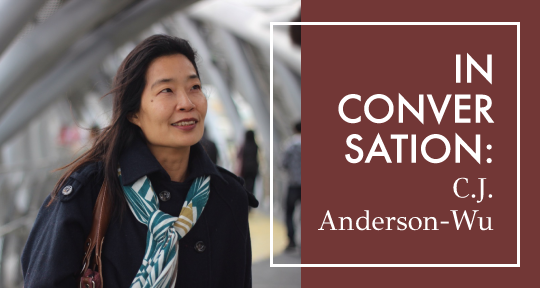After organizing a #GraphPoem computational poetry event that attracted hundreds of participants and thousands of viewers at DHSI 2021, Chris Tanasescu aka MARGENTO, Editor-at-Large for Romania and Moldova, is in the process of collaboratively starting a Digital Literature Lab at the Royal Library of Belgium on a FED-tWIN grant involving Université catholique de Louvain.
Chinese Social Media Manager Jiaoyang Li has received a China-Scotland Digital Collaboration Grant from the British Council and the City Artist Corps Grant from New York Foundation for the Arts to work on a series of community based literary events and workshops.
Assistant Director of Outreach Ka Man Chung’s English translation of Over the Left Bank of the River by Chung Wenyin has been awarded a translation and publication grant by Taiwan’s Ministry of Culture. The work is expected to be released by Serenity International in 2022.
Educational Arm Assistant Katarzyna Bartoszyńska’s new book Estranging the Novel: Poland, Ireland, and Theories of World Literature has just been published this month by Johns Hopkins University Press.
Director of the Educational Arm Kent Kosack has a new short craft essay on the retrospective narration in J.D. Salinger’s “De Daumier-Smith’s Blue Period” up at Fiction Writers Review.
Assistant Editor (Poetry) M.L. Martin’s collection of ekphrastic prose poems, Theater of No Mistakes, won the 2021 Rick Campbell Chapbook Award, and will be published later this year with Anhinga Press (USA). In addition, her anti-translation of the Anglo-Saxon poem by the anonymous, pre-10th c. proto-feminist, Wulf & Eadwacer, was named a finalist for CSU’s 2021 Lighthouse Poetry Series (USA). READ MORE…


